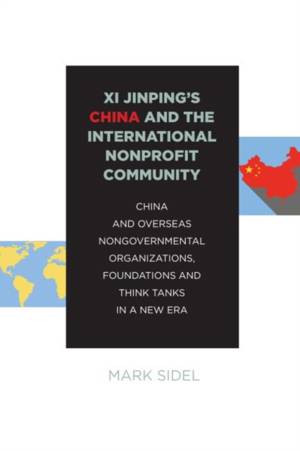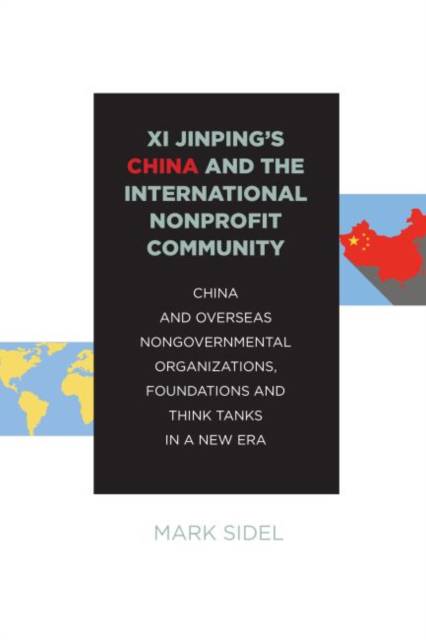
- Afhalen na 1 uur in een winkel met voorraad
- Gratis thuislevering in België
- Ruim aanbod met 7 miljoen producten
- Afhalen na 1 uur in een winkel met voorraad
- Gratis thuislevering in België
- Ruim aanbod met 7 miljoen producten
XI Jinping's China and the International Nonprofit Community
China and Overseas Nongovernmental Organizations, Foundations, and Think Tanks in a New Era
Mark SidelOmschrijving
Independent organizations aided China's rise but face an uncertain future
Before the Communist Party took power in China in 1949, businesspeople and missionaries were among the most important and numerous Westerners in China. Since China's reopening to the world in the late 1970s, thousands of non-profit organizations, schools, universities, foundations, and trade associations--many of them with overseas connections--have worked and played important roles in China.
The government has sometimes welcomed these institutions as major contributors to China's economic and social development. But under the leadership of President Xi Jingping, the government now tends to view independent organizations, of all kinds, as potential threats to the country's stability and security.
Mark Sidel's book charts the history of China's relationship with a wide array of independent organizations and analyzes the current trend toward government restrictions on their work. Sidel also addresses the future for these organizations in China, given the current government's largely negative attitude toward them.
Despite the importance of independent institutions in China's recent development and its relations with the United States and other countries, very little has been written about their work in China. This book by a noted expert on the topic fills that void. It will be of interest to officials and supporters of China-based independent organizations, along with government officials, academics, and anyone concerned about the future of China.
Specificaties
Betrokkenen
- Auteur(s):
- Uitgeverij:
Inhoud
- Aantal bladzijden:
- 224
- Taal:
- Engels
Eigenschappen
- Productcode (EAN):
- 9780815739203
- Verschijningsdatum:
- 7/06/2022
- Uitvoering:
- Paperback
- Formaat:
- Trade paperback (VS)
- Afmetingen:
- 152 mm x 229 mm

Alleen bij Standaard Boekhandel
Beoordelingen
We publiceren alleen reviews die voldoen aan de voorwaarden voor reviews. Bekijk onze voorwaarden voor reviews.












